German brand gets mixed buyer reviews
The value of a Volkswagen dealership, already dismal due to low sales in the U.S., has plummeted further following the diesel-emissions scandal, said two buy-sell advisory firms' reports released last week.
But VW's paltry value could make it a bargain for brave buyers who believe in the brand's ability to recover.
"Certain aggressive buyers may be willing to acquire VW franchises at very low blue sky values with the expectation that the company will weather the storm," wrote Erin Kerrigan, managing director of Irvine, Calif., buy-sell advisory firm Kerrigan Advisors, in her quarterly Blue Sky Report. "If correct, these prescient investors will likely earn attractive returns on their investments."
Meanwhile, the reports gave domestic brand dealerships rising valuations due to low gasoline prices that have spurred truck sales.
Domestic dealers "own luxury stores without having to pay the premium multiples to buy one, or deal with onerous facility requirements that the German OEMs often apply to their dealers," wrote Alan Haig in the Haig Report for the third quarter. He heads Haig Partners, a Fort Lauderdale, Fla., buy-sell advisory firm.
Blue sky is the intangible value of a dealership, expressed as a multiple of adjusted pretax profit, and can vary enormously based on a dealership's location and other factors.
In the year-ago third quarter, Haig's average blue-sky value for Volkswagen stores was 2.75 to 3.75 times earnings. At the end of 2014, Haig went to a dollar value instead of an earnings multiple. He now values VW's blue sky at $250,000 to $2.5 million, down from $500,000 to $3 million at the end of the second quarter.
"Many VW dealerships are nominally profitable or losing money, so we don't see them trading for a multiple of earnings, but rather for a flat dollar amount based upon their potential for future profits," wrote Haig. "The cheating scandal has made this franchise even less desirable."
Kerrigan's report lowered its range for VW's blue-sky value to 2 to 3 times earnings, from 3 to 4 times earnings a year earlier and 3 to 3.5 times at the end of the second quarter, before the scandal.
Buyers have mixed views about holding a VW franchise in the wake of the scandal.
Dealer Mark McLarty acquired a VW dealership as part of his purchase of eight stores from Joe Machens Dealerships in Missouri. He signed the deal right before the VW diesel crisis hit, then became concerned because the VW store was a key contributor to the group's total revenue. The store often sold more than 100 new VW vehicles a month.
"There was a question of, should we go back and change the deal?"
Mark McLarty
McLarty Automotive Group
"There was a question of, should we go back and change the deal?" McLarty, chairman of McLarty Automotive Group in Little Rock, Ark., told Automotive News. "Our answer was no," he said. "We have long-term confidence in VW and think a lot of good can come out of this."
McLarty, who has had success with VW in his dealership groups in China and Brazil, added, "There might be more tactical buyers who are looking to buy low and sell high," but he is not that type of buyer. He said he is open to buying more VW stores because of his long-term investment approach.
But another dealer, who asked to remain anonymous, was close to buying a VW store this year, he said. He worried that the store's units in operation and new-car sales wouldn't sustain the dealership long term, so he backed out of the deal.
Volkswagen's lower values make dealer Tommy Baker's interest in buying a VW store stronger. "Volkswagen is going to be around," he says.
Then the diesel scandal broke. The dealer said he was relieved the deal did not happen after that, because he would have "overpaid for sure." He is still looking to buy stores, but he isn't interested in a VW franchise.
The VW scandal illustrates the importance of franchise diversification, Kerrigan wrote.
No one knows that better than the large private and public dealership groups.
In October, for example, Asbury CEO Craig Monaghan said that domestic franchises were appealing. In fact, Asbury's last three acquisitions have been Ford stores.
"It allows us to diversify into the truck business," said Monaghan. "Our business is very heavy car today. These are franchises that trade at a lower price point relative to many of the other stores in the marketplace."
Asbury will continue to target domestic stores in truck-heavy markets, he said.
The nation's largest auto retailer, AutoNation Inc., is buying big with domestic-brand and VW stores. So far it has closed or announced deals to buy 13 Chrysler-Dodge-Jeep-Ram stores, three Chevrolet stores, one Ford-Lincoln store, one Ford store and three VW stores. Of the $1.7 billion in added annual revenue through acquisitions announced by AutoNation this year, the majority -- $1 billion -- is from Fiat Chrysler Automobile brands.
Tommy Baker, owner of Baker Motor Co. in Charleston, S.C., said lower values for Volkswagen make his interest in buying a VW store stronger, but he's not in active negotiations on any such deal now.
"Volkswagen is going to be around," Baker said. "They're doing all the right things now to be able to correct the issue. They'll be fine. I certainly wouldn't be afraid to be a VW dealer today. Down the road, it will be a good franchise to have."




